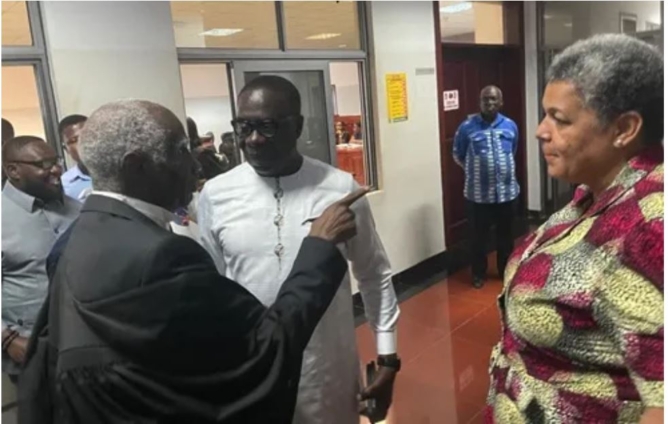Celebrated Ghanaian legal practitioner Tsatsu Tsikata, who served as lead counsel for recently exonerated Assin North MP James Gyakye Quayson, has revealed that he declined an offer from Attorney General Dr Dominic Ayine to discontinue the case against his client.
According to Tsikata, he rejected the offer because he was determined to secure an acquittal for the MP in order to eliminate any future legal uncertainties.
Dr Ayine, just two months ago, extended immunity to several Ghanaians facing trial in various courts, including the Supreme Court.
This immunity was also offered to Gyakye Quayson, who had been on trial for three years on charges including deceit of a public officer, forgery of a passport, knowingly making a false statutory declaration, perjury, and false declaration.
At the time the offer was made, a prosecution witness was still testifying. Many were surprised when Tsikata turned down the deal.
However, after Quayson was acquitted based on the merits of the case and the legal arguments presented by his legal team, Tsikata issued a statement explaining why he made the risky decision to reject the Attorney General’s offer.
Dr Ayine, during a press briefing on ongoing prosecutions, confirmed that he had offered to withdraw the case but noted that Quayson’s legal team had declined.
Tsikata elaborated that the decision was based on legal and security considerations.
“At the time the Attorney-General was withdrawing the other cases, the prosecution in Gyakye Quayson’s trial had not closed its case. The last prosecution witness was still testifying. If the Attorney-General had withdrawn the case at that stage, under section 59 of the Criminal and Other Offences (Procedure) Act, 1960 (Act 30), the judge could only ‘discharge’ the accused,” he stated.
He further explained, “According to section 59(4) of Act 30, the accused could, at a future date, be recharged with the same offences and would not be able to claim he had already been tried and acquitted (‘autrefois acquit’).”
In contrast, Tsikata clarified why other accused persons, such as Finance Minister Dr Cassiel Ato Forson and social activist Oliver Barker-Vormawor, accepted the Attorney General’s offer.
“In those cases, the prosecution had closed its case and the defence had begun testifying. So, when the prosecution withdrew, the accused were ‘acquitted and discharged’ under section 59(2)(b)(ii) of Act 30. This means the same charges cannot be brought against them in the future,” he said.
Tsikata concluded: “It is in the best interest of Gyakye Quayson that his trial should end with an acquittal and discharge—not a mere discharge that would leave him open to future jeopardy. That is why the defence preferred to make a submission of no case at the end of the prosecution’s case to secure an acquittal and discharge.”
With this outcome, the Member of Parliament for Assin North, James Gyakye Quayson, walks a free man—shielded from the possibility of future prosecution, even if a new administration assumes power after future elections.
ALSO READ:

